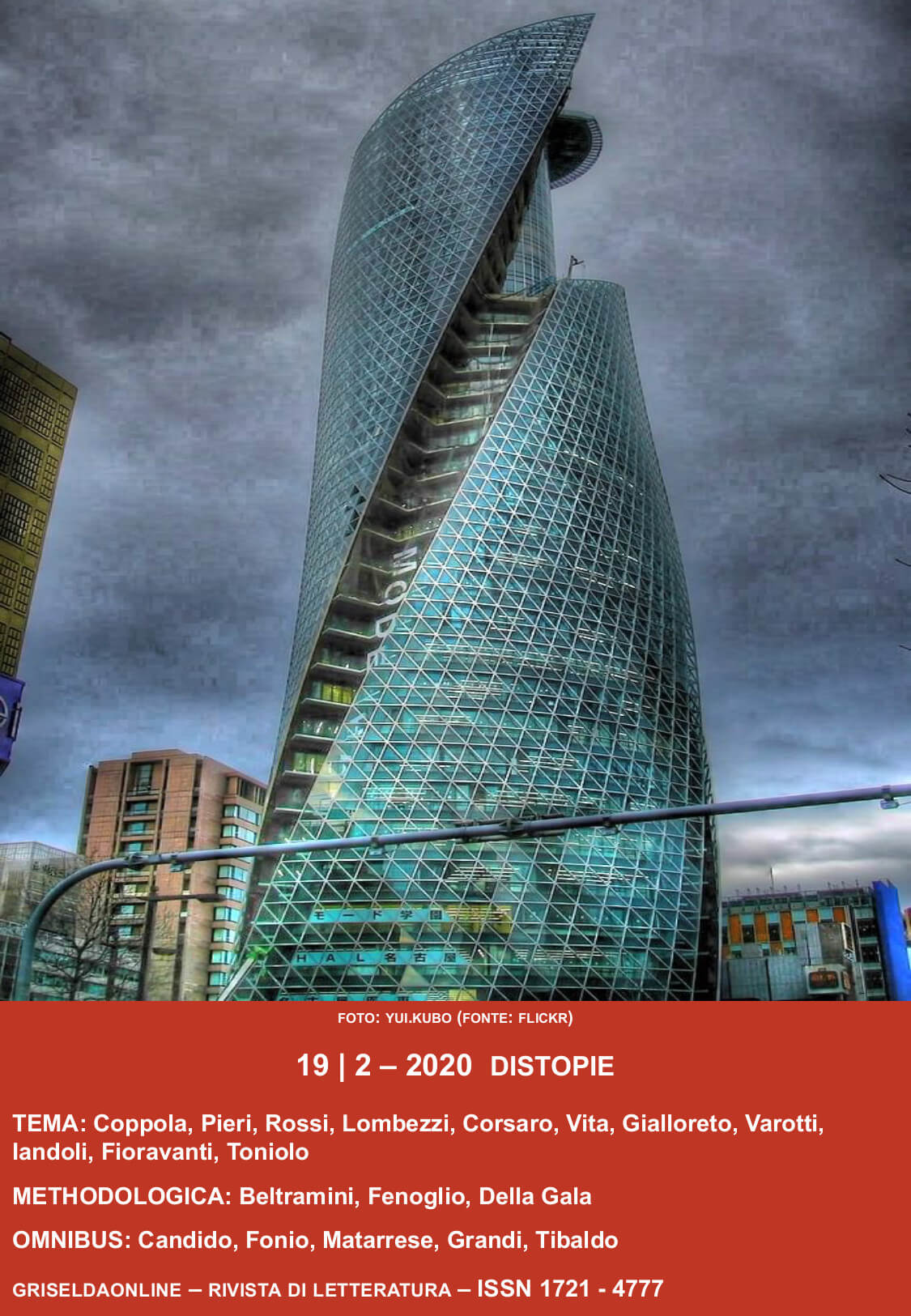Otherness, Utopia, and Dystopia in Arabic Literature
The works of some Egyptian writers, spanning from the early 1900s to the post-Arabic Spring disenchantment
DOI:
https://doi.org/10.6092/issn.1721-4777/10737Keywords:
otherness, utopia, dystopia, arabic literatureAbstract
The utopian narrative offers the writer the pretext to manipulate reality, to transpose social and political criticisms to other eras or other places. Criticism or self-criticism often arises from contact with otherness and from the awareness of differences. The encounter with the other takes place through the journey, as well as the pursuit of utopia which always presupposes a move or departure from one’s homeland. The race towards utopia often fails, so the narratives and perceptions change into dystopia, albeit with a preliminary intermediate stage: the so-called ‘critical dystopia’. The next phase is the arrival of a real dystopia, characterized by fear, as Claeys’ studies have attested. All these elements portray a single fear: that of losing control over one’s destiny and the total marginalization of one’s will as an individual. Rather than the pursuit of utopias, which are in fact disappointing, or the discouragement that arises from dystopian conceptions, only the full implementation of the ‘right to recognition’ conceived as a path of honor and dignity represents the only way out of the discomfort and marginalization experienced by some countries and its citizens, as in Egypt.
References
B. ˁAbd al-ˁAzīz (2013), Al-Ṭabūr, Il Cairo, Dār al-Tanwīr, 2013
T. Al-Ḥakīm, ˁAwdat al-rūḥ, Il Cairo, Šarikat maṭbaˁa al-raġaˀib, 1933
T. Al-Ḥakīm, Fī sanat malyūn, in Arinī Allāh, Il Cairo, Dār al-Šurūq, 2007
T. Al-Ḥakīm, Riḥlat ˀilā al-ġad, Il Cairo, Dār Misr al-Tibāˁa, 1957
Ḥ. Al-Hawāri, «Ḥikāyat Wensinck, Al-Mustašriqūn wa-l-islām», «Al-Manār» 35/9, Il Cairo 1935 [pagina consultata il 10 marzo 2020]
S. Amīn, B. Ghalyun, Ṯaqqāfat al-ˁawlama wa ˁawlamat aṯ-ṯaqqāfa, Damasco, Dār al Fikr, 2002.
A. Appadurai, Il futuro come fatto culturale. Saggi sulla condizione globale, Milano, Raffaello Cortina, 2015
Ḍ. ˁAssy, Ġuyūm faransiyya, Il Cairo, Averroes, 2020
E. Auerbach , Il realismo nella letteratura occidentale, Torino, Einaudi 200010
R. Baccolini, T. Moylan (a cura di), Dark Horizon: Science Fiction and the Dystopian Imagination, New York and London, Routledge, 2013
Ṭ. Bahāˀ, Bi-l-ams ḥalimtu bi-k, Il Cairo, Maktabat al-usra, 1999
B. Battaglia, Nostalgia e mito nella distopia inglese. Saggi su Oliphant, Wells, Forster, Orwell, Burdekin, Ravenna, Longo, 1998
M. K. Brooker, The Dystopian impulse in modern literature. Fiction as social criticism. Westport, Conn, Greenwood press. 1994
G. Claeys, Dystopia: a Natural History, Oxford, Oxford University Press, 2017
G. Claeys, «News from Somewhere: Enhanced sociability and the composite definition of utopia and dystopia», «History: The Journal of the Historical association», 98/330, 2013, pp.145-173
A. Colombo (a cura di), Utopia e Distopia, Bari, Edizioni Dedalo, 1993
U. Fabietti, F. Remotti, Dizionario di antropologia, Bologna, Zanichelli, 1997
P. Gatti, Discorso utopico e distopico, «Mneme» [pagina consultata il 20 marzo 2020]
G. Gervasio, Egitto: una rivoluzione annunciata?, in F. M. Corrao ( a cura di), Le rivoluzioni arabe. La transizione mediterranea,Mondadori università, Milano 2011, pp. 134-161
Ḥ. Ḥanafi, Muqaddima fī ˁilm al-istiġrāb, Il Cairo, Dār al-fanniyya li-n-nasr wa-t-tawzīˁ, 1991
F. Hartog, Lo specchio di Erodoto, traduzione di Adriana Zangara, Milano, Il saggiatore, 1992
M. Kilani, L’invenzione dell’altro. Saggi sul discorso antropologico, Bari, Dedalo, 2015
E. M. Meletinskij, Archetipi letterari, ed. ital. a cura di M. Bonafin, Macerata, EUM, 2016.
C. Morgan, «Monday Original Content: Ahmed Khaled Towfik Interview», «World Science Fiction» [pagina consultata il 20 agosto 2020]
D. Pioppi, L’Egitto dell’infitah: quale liberalizzazione?, in F. Bicchi, L. Guazzone, D. Pioppi (a cura di ), La questione della democrazia nel Mondo Arabo. Stati società e conflitti, Polimetrica, Monza (Mi), 2004, pp. 271-290
E. W. Said,Cultura e imperialismo. Letteratura e consenso nel progetto coloniale dell’Occidente, Roma, Gamberetti editrice, 1998.
E. W. Said, Orientalismo, Milano, Feltrinelli, 1999
G. Spagnoletti, Letteratura e utopia. Alle origini della fantascienza, Roma, Empirìa, 1998
C. Taylor, La politica del riconoscimento, in J. Habermas, C. Taylor, Multiculturalismo. Lotte per il riconoscimento, Feltrinelli, Milano 20056, pp. 9-62
A. K. Tawfīq, Yūtūbiyya, Il Cairo, Dār Mayrīt, 2008
Downloads
Published
How to Cite
Issue
Section
License
Copyright (c) 2021 Griseldaonline

This work is licensed under a Creative Commons Attribution-ShareAlike 4.0 International License.





